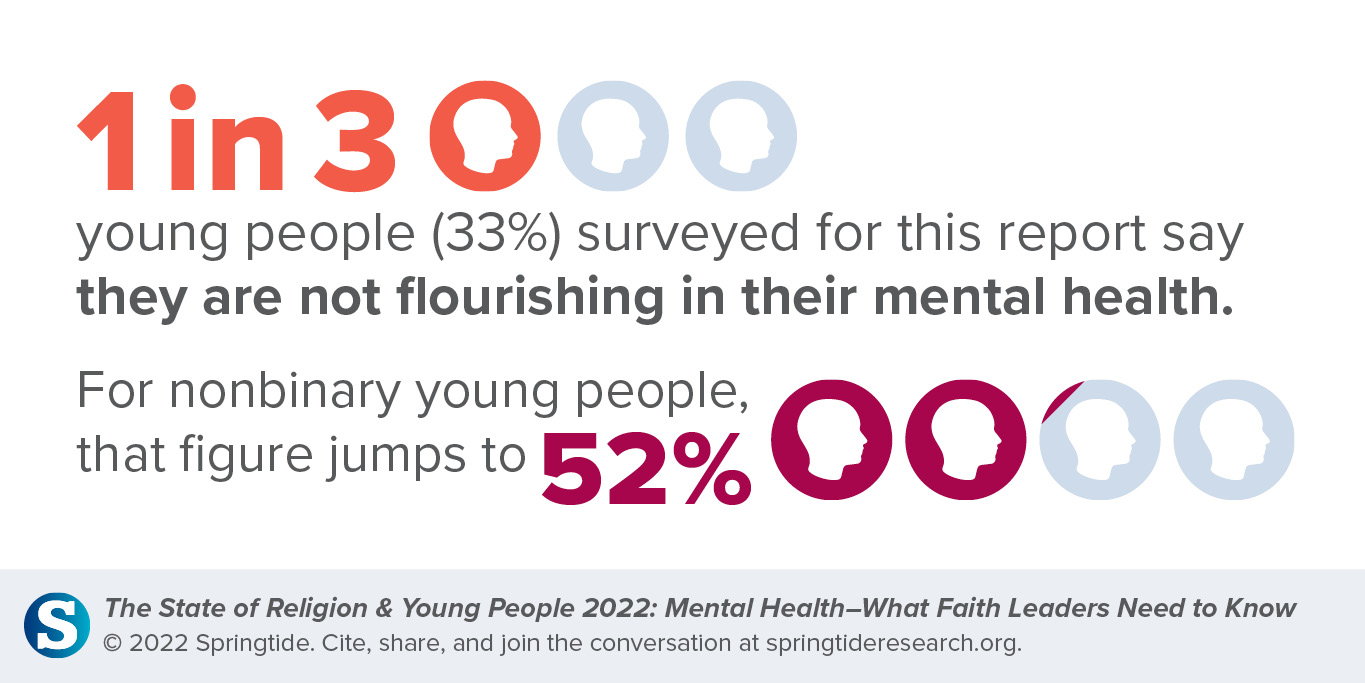Gen Z and Mental Health: Four Intersections with Faith
I think religion . . . is a place to find belonging. It’s a place to connect with a higher purpose, which is a calling from God in my understanding. It’s a place to connect to creativity, but I think it’s also, for many people, a restriction of freedom and sort of obligation, which creates a lot of shame in people’s lives.
—Mark, 22
Research from the social sciences has long shown a relationship between being religious or spiritual and well-being. Many people know belonging to a faith community can foster a sense of happiness, while others have experienced religion and spirituality’s capacity to harm mental health, as Mark’s quote points out. The State of Religion & Young People 2022: Mental Health – What Faith Leaders Need to Know focuses on what faith leaders and others who work directly with young people need to understand about how religion, spirituality and mental health intertwine. Because religion has the power to help so many young people thrive or to cause real damage by exacerbating mental-health challenges for young people (in ways that ultimately accelerate trends away from religion), it is critical that religious leaders (and all involved in faith traditions) engage in these discussions young people in an effective way.
Here are four findings from Springtide’s most recent report that showcase what young people ages 13 to 25 are experiencing with their faith and mental health.

- Over half (53%) of young people selected “my mental health” when asked to identify the biggest challenges they faced during the COVID-19 pandemic. Of the 10 challenges we asked about
- Many young people recognize that
- Believing in a higher power is distinct from feeling connected to it, but both strong belief and feelings of connection correlate with greater self-reported flourishing in one’s mental and emotional health. This aligns with prior social science research that shows those who report religious or spiritual belief and practice tend to be happier with those who don’t.
- Young people may not visit a house of worship regularly, but they do report engaging in religious and spiritual practices – and it can make a difference in how they feel. Our data show that nearly two-thirds of young people are wholly or largely absent from religious services. Yet,
This is just a slice of the full data in our report, which offers a wide lens on the state of young people’s religious identities, beliefs, practices, and relationships—all with reference to their mental health. Get the full report here, or sign up for The Tide Report, our biweekly newsletter, to learn more about young people, faith, and mental health.






